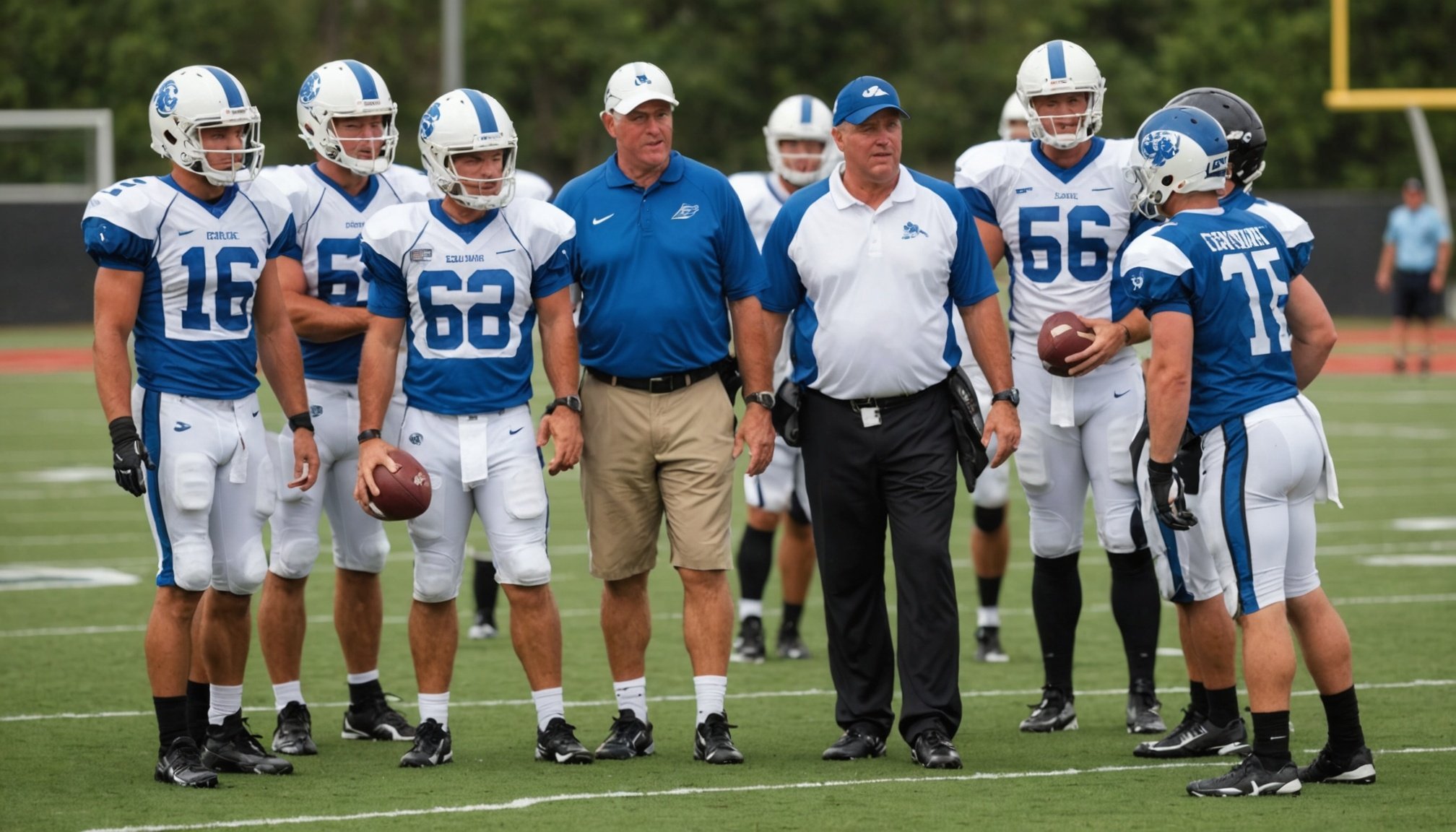Creating a culture of ongoing improvement in football coaching elevates not only players but the entire team environment. Coaches can foster this culture through innovative strategies that encourage adaptability, continuous learning, and open communication. By embracing feedback and prioritizing player development, coaches can create a dynamic atmosphere where growth and excellence become the norm. Explore these top strategies to transform your coaching approach and inspire your team to achieve their full potential.
Establishing a Growth Mindset in Coaching
A growth mindset is crucial in sports coaching, as it encourages athletes to view challenges as opportunities for improvement. This coaching philosophy focuses on the belief that abilities and intelligence can be developed through dedication and hard work. This mindset is essential for fostering resilience and a love of learning among athletes.
Also to see : Top Techniques to Effectively Manage Pre-Match Stress for Football Success
To instill a growth mindset, coaches can employ several techniques. Firstly, they should emphasize effort over innate talent. Praising athletes for their hard work rather than their natural ability helps them understand that success is a result of perseverance. Secondly, setting incremental goals allows athletes to experience progress, reinforcing the idea that they can improve through consistent effort. Lastly, encouraging athletes to view failures as learning experiences rather than setbacks promotes a positive attitude towards challenges.
Several successful coaches have embraced this growth mindset philosophy. For instance, John Wooden, a legendary basketball coach, was known for his focus on personal development and continuous improvement. Similarly, Sir Alex Ferguson, a renowned football manager, emphasized the importance of learning from mistakes and adapting strategies to enhance athlete development. These examples illustrate the transformative impact of a growth mindset on both individual and team performance.
Also to see : Effective Strategies for Youth Football Coaches to Manage Overprotective Parents
Effective Communication Strategies
Effective communication skills are vital for football coaches aiming to foster a growth mindset within their teams. Mastering these skills involves understanding how to convey messages clearly and constructively. A key aspect is the ability to provide constructive feedback. This means focusing on specific actions rather than personal attributes, which helps athletes understand how to improve without feeling personally criticised.
To implement successful feedback mechanisms, coaches should consider the "sandwich approach," which involves framing feedback between two positive statements. This technique not only softens the impact of criticism but also motivates athletes by highlighting their strengths. Furthermore, it is crucial to ensure that feedback is timely and relevant, addressing issues as they arise to maintain team dialogue and momentum.
Creating open lines of communication within the team is another essential strategy. Coaches should encourage athletes to express their thoughts and concerns, fostering an environment where everyone feels heard and valued. Regular team meetings and one-on-one check-ins can facilitate this, helping to build trust and camaraderie. By prioritising open communication, coaches can create a supportive atmosphere that enhances team cohesion and encourages athletes to embrace challenges as opportunities for growth.
Team-Building Activities to Enhance Cohesion
Fostering team cohesion is essential for the success of football teams. Engaging in team-building activities can significantly enhance collaboration and unity among players. These activities range from trust exercises to strategic games designed to improve communication and problem-solving skills.
Types of Team-Building Activities
- Trust Exercises: Activities like trust falls or blindfolded tasks can build mutual trust among team members.
- Collaborative Challenges: Games that require teamwork, such as obstacle courses or scavenger hunts, encourage players to work together towards a common goal.
- Workshops and Retreats: These offer opportunities for players to bond outside of the usual training environment, fostering deeper connections.
Benefits of Team Cohesion
Strong team cohesion translates into improved performance on the field. When players trust and understand each other, they communicate more effectively, leading to better coordination during matches. This unified approach can also boost morale and motivation, creating a positive team culture.
Case Studies
Several teams have demonstrated the power of team-building initiatives. For instance, the 2014 German national football team credited their World Cup success to a series of strategic team-building exercises that enhanced their on-field synergy and resilience.
Professional Development for Coaches
In the world of sports, coach development is pivotal for maintaining a competitive edge. Ongoing professional development ensures that coaches are equipped with the latest strategies and techniques to enhance their team's performance. By engaging in continuous learning, coaches can adapt to new challenges and refine their coaching philosophy.
Training programs and certifications are essential components of professional development. These programs provide coaches with structured learning opportunities and expose them to innovative methodologies. For instance, attending workshops on communication skills or leadership can significantly improve a coach's ability to manage and motivate their team. Certifications from recognized sports organizations also add credibility and demonstrate a commitment to excellence.
Creating a culture of learning among coaching staff is crucial for sustained success. Encouraging coaches to participate in regular training sessions and share knowledge fosters an environment of growth and collaboration. This can be achieved by organizing in-house seminars, inviting guest speakers, or facilitating peer-to-peer learning sessions. Such initiatives not only enhance individual skills but also strengthen the collective expertise of the coaching team.
Ultimately, investing in continuous learning and development for coaches leads to improved team performance, greater job satisfaction, and a more dynamic sporting environment.
Measuring Improvement and Success
Understanding and applying performance metrics is essential for evaluating a football team's progress. These metrics provide a structured way to assess both individual and team performance. Key performance indicators (KPIs) include metrics like pass completion rates, tackles won, and goals scored. These indicators offer tangible data that can be analyzed to gauge success and identify areas for improvement.
Evaluation techniques are crucial for tracking athlete improvement. Techniques such as video analysis allow coaches to review game footage, offering insights into player positioning and decision-making. Additionally, fitness assessments, like VO2 max tests, help measure an athlete's physical development over time. These techniques provide a comprehensive view of an athlete's growth and areas needing attention.
Real-world examples highlight the effectiveness of these measurement practices. For instance, the English Premier League clubs utilize advanced data analytics to track player performance and make informed decisions on training and strategy adjustments. By adopting such practices, teams can ensure a data-driven approach to improvement tracking, leading to continuous development and success on the field. This meticulous approach not only enhances player performance but also contributes to overall team success.











